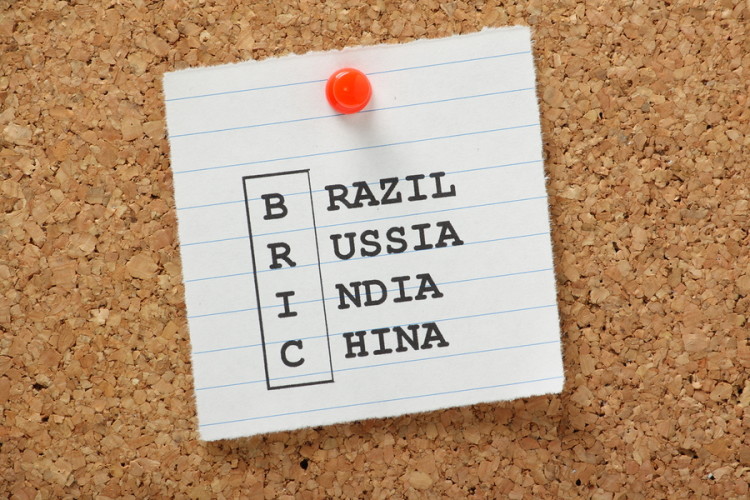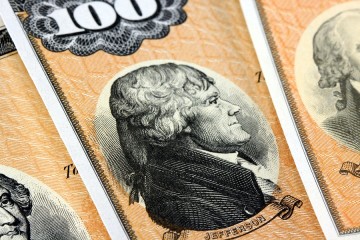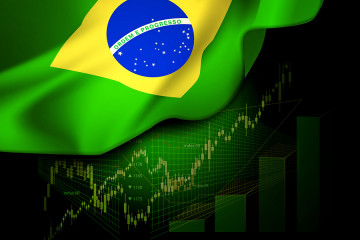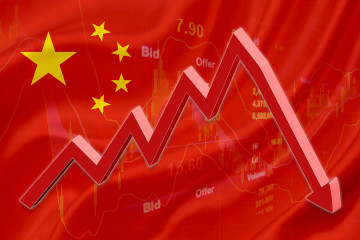Emerging Stocks Advance as Currencies Extend Rebound Before Fed

©2015 Bloomberg News
NUSGTE6KLVRJ
(Bloomberg) — Emerging-market assets jumped, with the benchmark equities index rising to the highest level this month, and currencies climbed further from the record lows they slumped to last week as investors awaited the Federal Reserve’s decision on U.S. interest rates.
The MSCI Emerging Markets Index added 2 percent to 822.71. Brazil’s real and the Russian ruble, the two worst-performers in developing nations this quarter, strengthened as a gauge of 20 currencies increased for a seventh day. Chinese stocks rebounded in a late-day rally amid speculation the government stepped in and bought shares to support the market.
Developing-nation stocks and currencies have been rebounding on mounting speculation that the Fed will hold off on raising the near-zero U.S. interest rates that have supported demand for riskier assets. Traders see a 30 percent chance of an increase in borrowing costs, up from as low as 26 percent on Monday but still below the 50 percent odds before China’s yuan devaluation in August. The stock benchmark slumped to the lowest since 2009 late last month, while currencies gauge slid to the weakest level ever on Sept. 7.
“Sentiment is quite good today, mainly because of market strength in China,” Maarten-Jan Bakkum, a senior emerging- markets strategist at NN Investment Partners in The Hague, said by e-mail. “In emerging markets, China is at least as important a factor as the Fed. So if the Chinese market rises, investors are willing to believe that this can offset some of the Fed risk.”
The Shanghai Composite Index surged 4.9 percent as technology shares led a rebound for Chinese companies beaten down during a $5 trillion rout. Samsung Electronics Co. climbed to a four-week high in Seoul. Russia’s Micex Index rose for the second time in three days. Lender Banco Bradesco SA led gains in Sao Paulo.
All 10 industry groups in the MSCI Emerging Markets Index advanced, led by consumer discretionary stocks, which jumped 2 percent. The developing-nation stock gauge has dropped 14 percent this year and trades at 10.9 times its estimated 12- month earnings. The MSCI World Index has slipped 3.3 percent in 2015 and is valued at 15.4 times.
A Bloomberg gauge tracking 20 developing-nation currencies rose 0.8 percent, posting its longest streak of gains since March 2014.
Banco Bradesco rallied 3.7 percent, contributing the most to a 2.5 percent gain in the Ibovespa. The Brazilian equity benchmark jumped to a five-week high. The real strengthened 0.8 percent against the dollar.
The ruble rose 2.1 percent amid a recovery in crude prices, allowing the Finance Ministry to test investors’ appetite for the longest maturity notes offered since June. Oil is Russia’s biggest export.
Crude has rebounded 17 percent from a six-year low reached on Aug. 24 as signs of reducing U.S. supplies cushioned the shock from the slowdown in China’s economy.
China Rebound
The Turkish lira added 1 percent as renewed risk appetite before the Fed decision boosted demand for the nation’s assets, which fell more than most emerging-market peers in the past month. The Borsa Istanbul 100 Index rose 1.3 percent in its second straight advance.
The Shanghai Composite jumped the most since Aug. 27, with gains coming in the final hour of trading in a pattern that’s become associated with state support. Technology stocks, the worst performers in the past three months, climbed the most among industry groups. The Hang Seng China Enterprises Index of mainland stocks in Hong Kong increased 2.1 percent.
Citic Securities Co., China’s biggest brokerage, rallied 6.7 percent in Shanghai, erasing losses. The company’s President Cheng Boming has been swept up in a widening campaign to root out financial wrongdoing and assign blame for the nation’s $5 trillion stock rout.
Yield Spread
Samsung Electronics gained 2.6 percent, providing the biggest boost to the benchmark Kospi index, which jumped 2 percent. Dubai’s DFM General Index increased 1.8 percent. The six-nation Gulf Cooperation Council is home to about 30 percent of the world’s proven crude reserves.
The FTSE/JSE Africa All Share Index added 3.1 percent and the rand advanced 1.5 percent. South Africa’s currency has gained for five days straight.
The premium investors demand to own emerging-market debt over Treasuries narrowed three basis points to 379 basis points, according to JPMorgan Chase & Co. indexes.
To contact the reporters on this story: Harry Suhartono in Jakarta at hsuhartono@bloomberg.net; Maria Levitov in London at mlevitov@bloomberg.net To contact the editors responsible for this story: Daliah Merzaban at dmerzaban@bloomberg.net Richard Richtmyer, Nikolaj Gammeltoft







No Comment